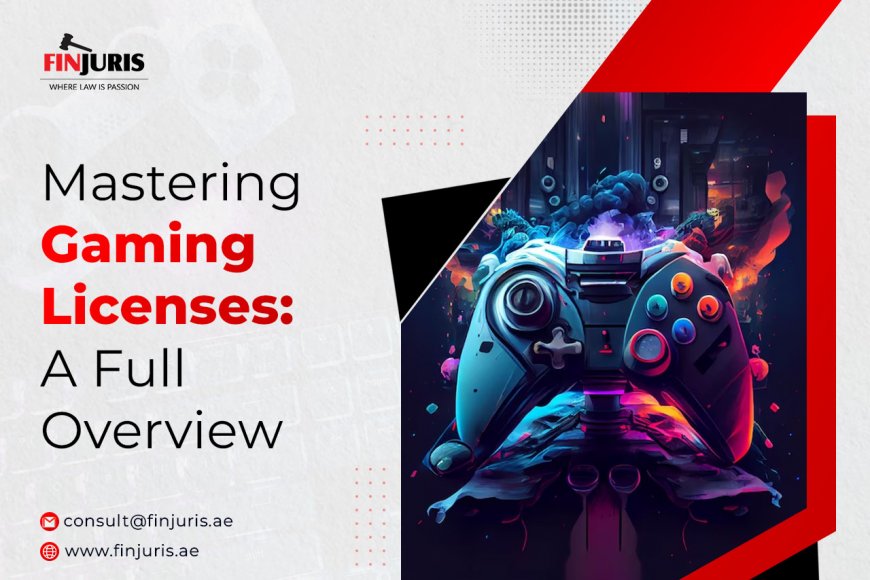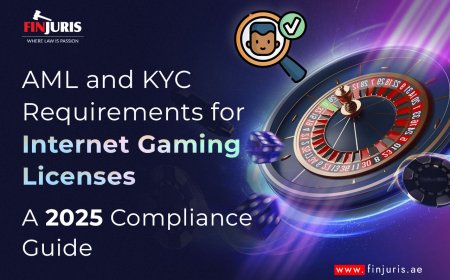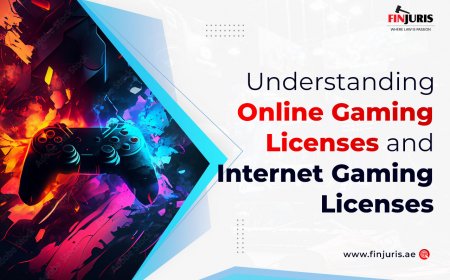Mastering Gaming Licenses: A Full Overview
A gaming license is an official authorization granted by a regulatory authority that enables an individual or organization to lawfully run a gaming or gambling enterprise.

In today's ever-changing online gaming scene, the concept of a gaming license is critical to maintaining fair play, consumer protection, and industry integrity. This article discusses gaming licenses, their relevance, the many types of licenses available, the regulatory agencies that oversee them, and the consequences of operating without one.
What is a Gaming License?
A gaming license is an official authorization granted by a regulatory authority that enables an individual or organization to lawfully run a gaming or gambling enterprise. This could encompass online casinos, sportsbooks, poker rooms, and other gambling establishments. The major goal of these licenses is to ensure that operators follow regulatory standards, hence ensuring a safe and fair gaming environment for players.
Why Are Gaming Licenses Important?
- Consumer Protection: One of the fundamental purposes of gaming licenses is to safeguard customers. Licensed operators must adhere to tight laws that include responsible gaming practices, operational transparency, and the protection of players' personal and financial information. This lowers the danger of fraud and assures that gamers can trust the gaming systems they use. In an industry prone to misuse and exploitation, such laws are critical to maintaining public trust.
- Fair Play and Integrity: Licensing authorities implement standards to prevent cheating, deception, and other unethical gaming behaviors. This includes conducting frequent audits and inspections of gaming operations to ensure that they meet standards. As a result, players can have a fair gaming experience, knowing that the games are being played honestly and that their odds of winning are dependent on luck and skill rather than manipulation. The use of Random Number Generators (RNGs) and regular software testing adds to this integrity.
- Legal Compliance: Operating without a gaming license can result in serious legal implications, such as fines and shutdowns. A proper license assures that operators follow local and international rules, which can vary greatly from one jurisdiction to the next. This compliance protects both the operator and the gamers from legal consequences, lowering the likelihood of legal action or financial damage.
- Market Credibility: A reputable gaming license increases an operator's credibility in the marketplace. Players are more inclined to prefer licensed platforms over unauthorized ones since the former are perceived as more dependable and trustworthy. This competitive edge can have a substantial impact on an operator's success. Furthermore, relationships with payment processors and software suppliers frequently require a legitimate gaming license, making it a critical aspect in corporate operations.
- Responsible Gaming Initiatives: Several licensing bodies mandate operators to develop responsible gaming policies. These initiatives could include self-exclusion choices, deposit limitations, and services for gamers who are battling with gambling addiction. These safeguards not only protect consumers, but they also improve the gaming industry's general reputation.
Types of Gaming Licenses
There are several sorts of gaming licenses, each tailored to a distinct type of gambling enterprise. Here are some of the most popular types:
- Online Gambling Licenses: These licenses are specifically tailored to online gaming platforms. They are issued by regulatory organizations in various jurisdictions and may apply to a variety of gaming activities, including sports betting, casino games, and poker. Online gambling licenses frequently include particular standards for software fairness and player protection.
- Gambling Licenses for Land-Based Locations: Physical casinos, sportsbooks, and other gambling enterprises must hold these licenses. They frequently have more stricter standards, including as inspections and safety rules. Land-based licenses may also contain provisions for operating slot machines, table games, and other gaming equipment.
- Licenses for Bingo and Lotteries: Organizations that want to run bingo halls or lottery systems must frequently get special permits. These licenses may have restrictions governing how games are run and how profits are distributed. Charitable groups, for example, may require separate permits to organize bingo games for fundraising.
- Skill Game Licenses: Some governments provide permits for skill-based games that do not rely solely on chance. These licenses typically have distinct criteria, as they frequently focus on player talent rather than luck. This category may include games such as fantasy sports and skill-based arcade games.
- Mobile Gaming Licenses: With the advent of mobile gaming, certain governments have begun to provide specific licenses for mobile applications. These licenses ensure that mobile gambling operators meet the same criteria as their internet equivalents, including payment processing and data security.
The Licensing Process
Obtaining a gaming license usually requires many steps:
Application Submission: Operators must submit an application that describes their business model, financial situation, and compliance methods.
Background Checks: Regulatory organizations undertake rigorous background checks on operators, including their financial and criminal histories.
Compliance Review: The operator's gaming software, payment systems, and security measures are evaluated to ensure that they meet regulatory requirements.
License issuance: If the operator meets all of the conditions, the regulatory agency will issue the gaming license.
Ongoing Compliance: After acquiring a license, operators must submit to periodical audits and report any changes to their business procedures.
Challenges in the Licensing Landscape
While gaming licenses have several advantages, the licensing landscape is not without obstacles. Some of these include:
Cost: Obtaining a gaming license can be costly, including application fees, legal fees, and continuing compliance expenses.
Complex Regulations: Navigating the regulatory framework can be difficult, particularly for operators seeking to penetrate numerous jurisdictions.
Reputation Risks: Operators may suffer reputational harm if they fail to comply with regulations or are involved in scandals, which can jeopardize their license status.
The Future of Gaming Licenses
As the gaming business evolves, so will the licensing landscape. With the rise of future technologies like blockchain and virtual reality, new types of gaming may necessitate different legal methods. Furthermore, as additional jurisdictions understand the economic benefits of regulated online gaming, the number of license choices will undoubtedly expand.
The trend toward tougher laws for consumer protection and ethical gaming is projected to continue. To meet these needs, operators may need to increase their investment in compliance and technology.
Finally, gaming licenses are critical to the gaming industry's credibility, as they ensure fair play, consumer protection, and regulatory compliance. As the online gambling industry expands, understanding the significance of gaming licenses and the legal frameworks that regulate them becomes increasingly important for both operators and gamers. By using licensed platforms, players may have a safe and secure gaming experience, while operators can establish trust and reputation in a competitive market. The future of gaming licenses is expected to see more advances in regulation, technology, and consumer protection, paving the path for a more responsible and transparent gaming business.
What's Your Reaction?




















